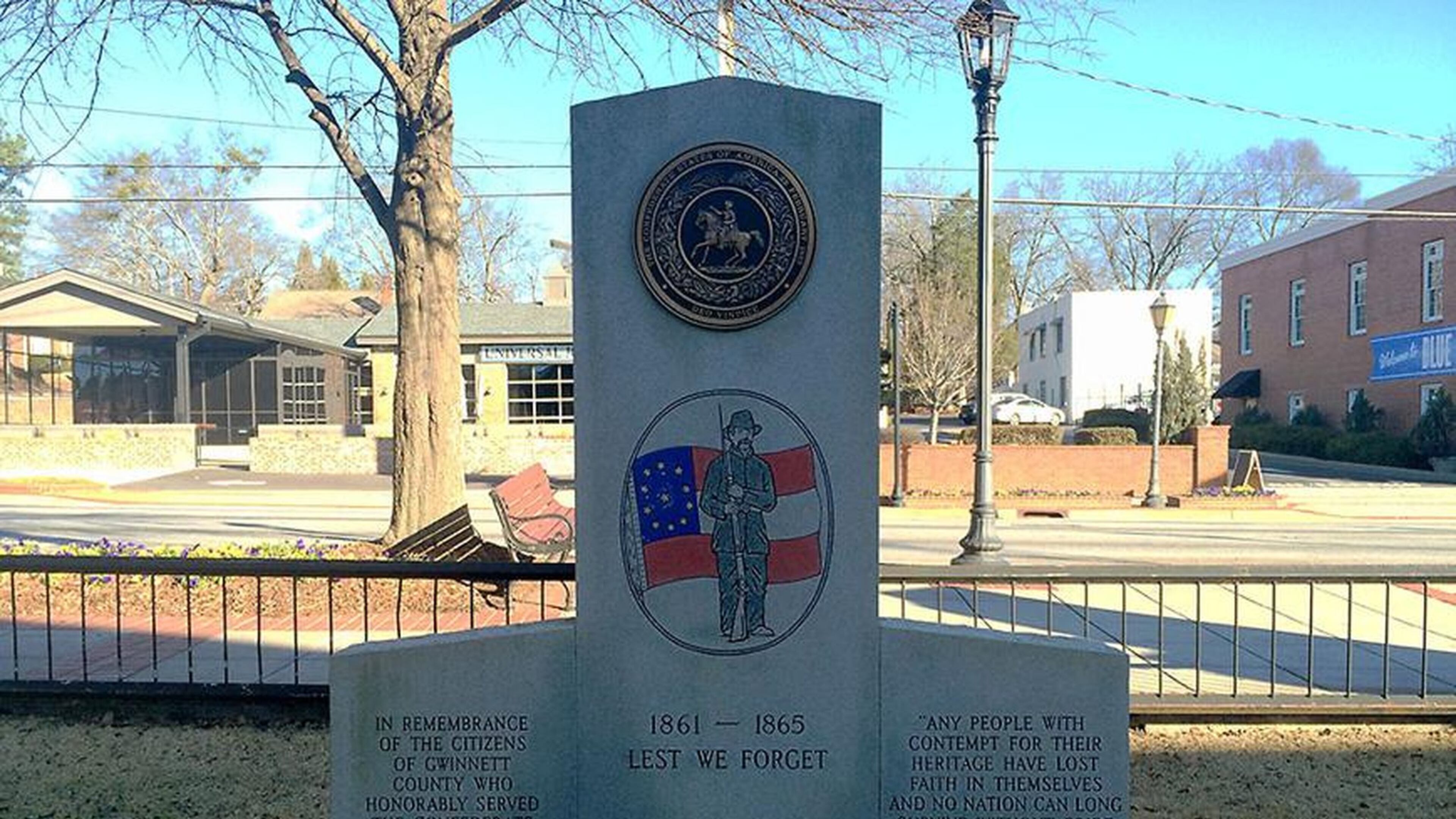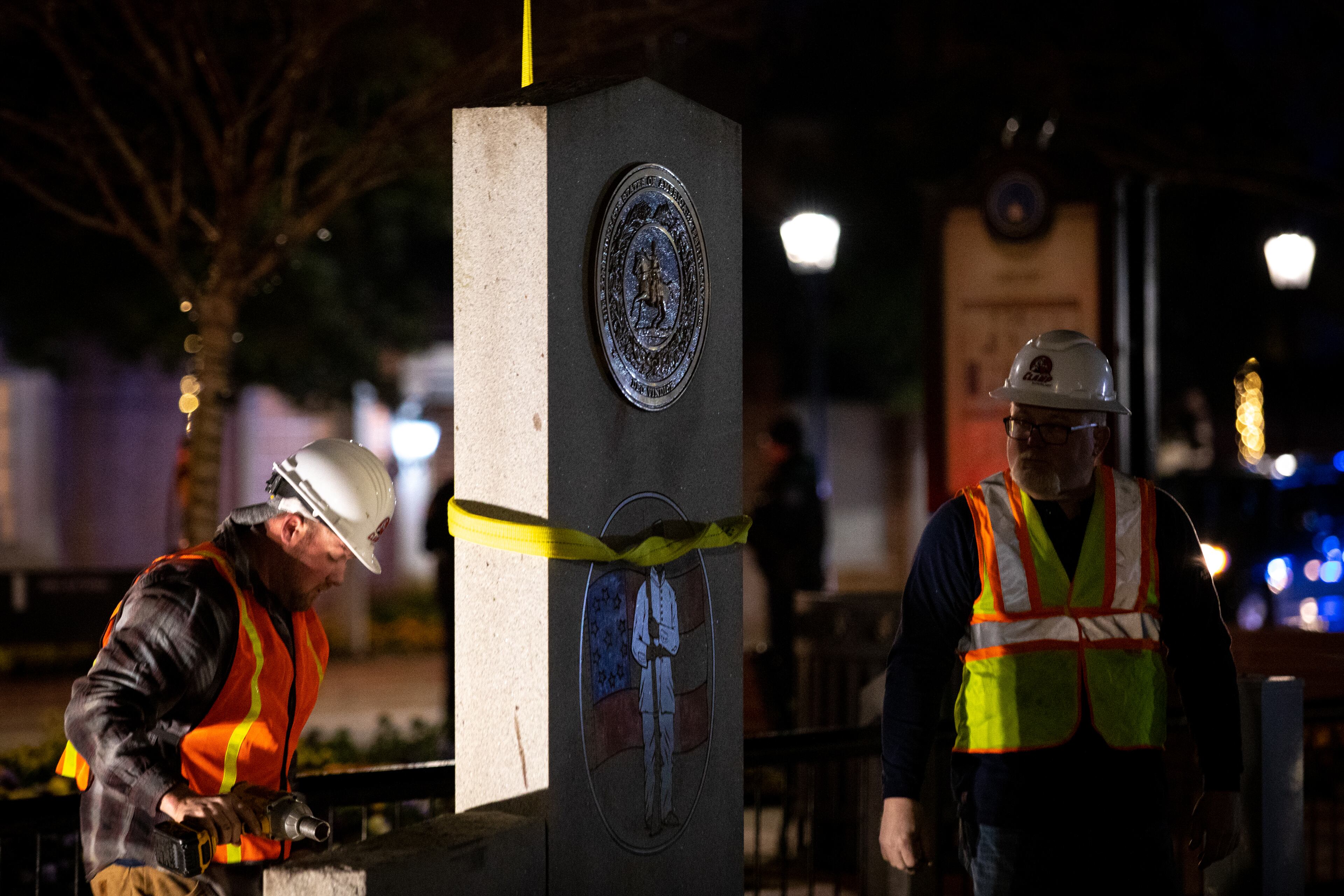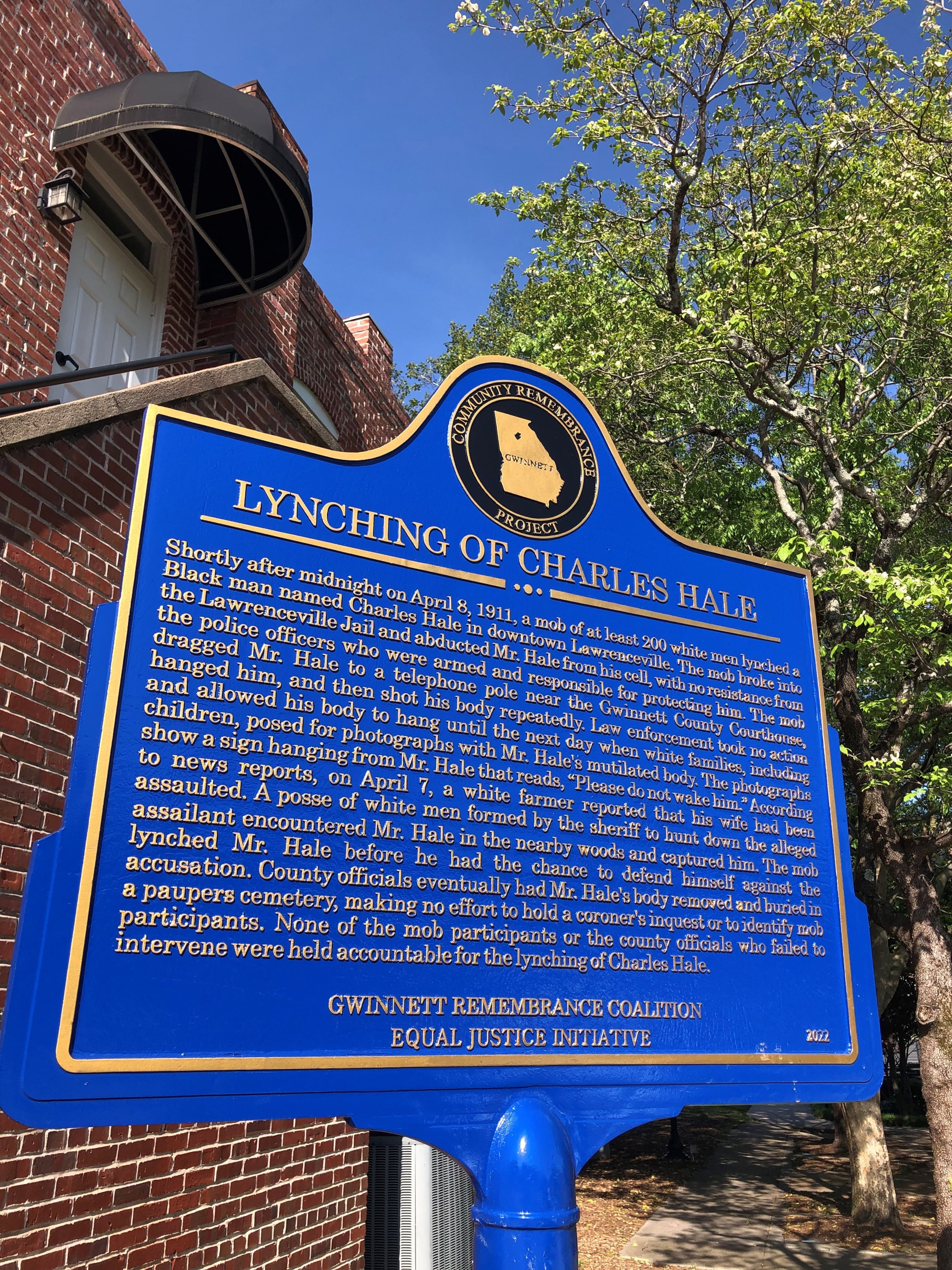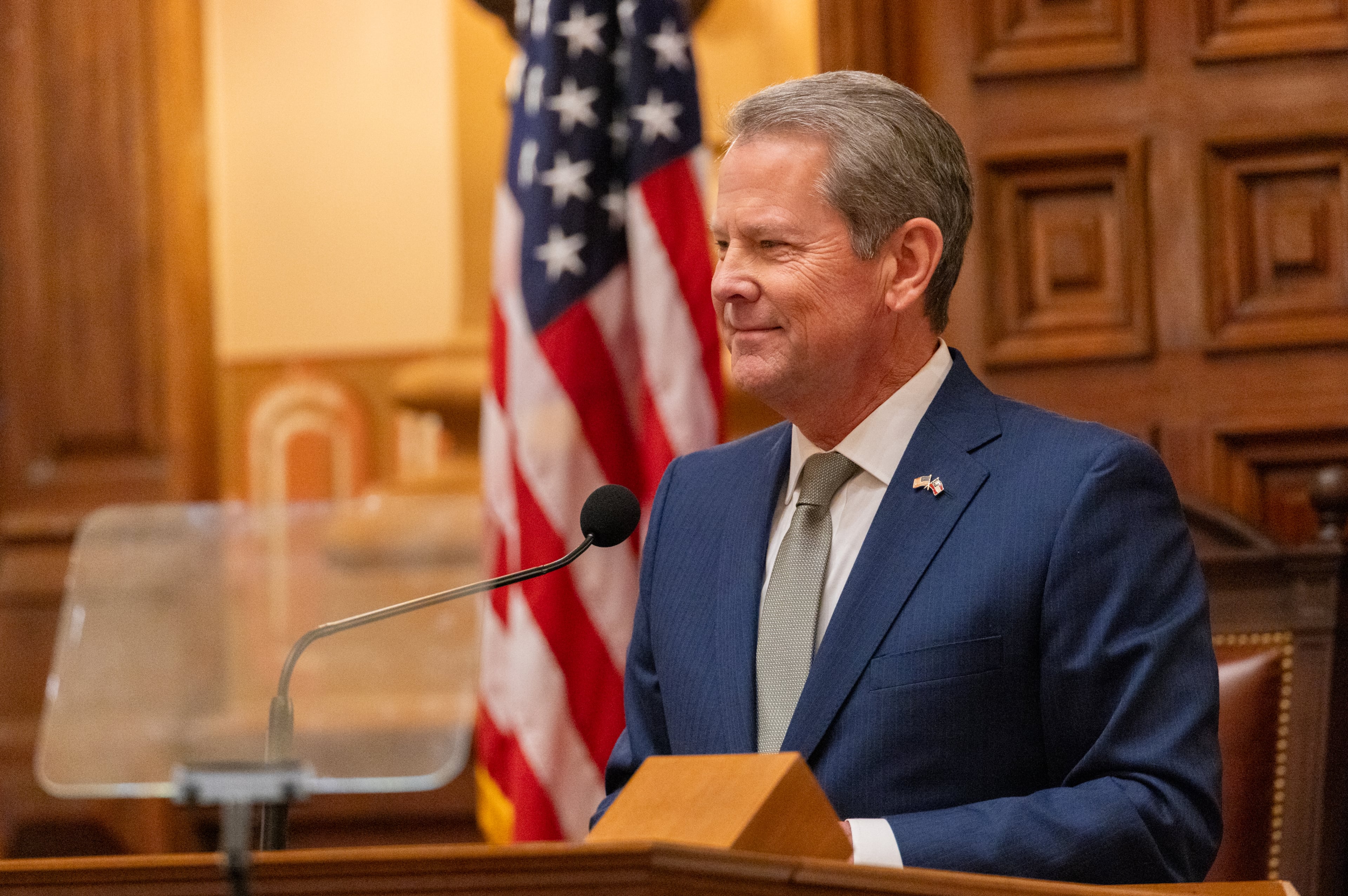Ownership of Confederate monument installed in 1993 central to lawsuit

The legal battle over the removal of the Confederate monument from Lawrenceville’s downtown square is developing around the question of who owns the granite slabs that local descendants of Confederate soldiers installed in 1993.
State law restricts the removal of publicly owned historical or military monuments — including those that commemorate the Confederacy — and the removal of privately owned monuments from private property.
But the statutes say nothing about the removal of privately owned monuments from public property, which Gwinnett County contends occurred last year in Lawrenceville square.
The Sons of Confederate Veterans disagree. That group, along with the United Daughters of the Confederacy, paid for the Lawrenceville monument’s installation. The organization sued the county and all five commissioners in February in Gwinnett County Superior Court, arguing the monument is publicly owned.
Unlike many other Confederate monuments that have stood for more than a century, documentation of the Lawrenceville monument’s creation only dates back 30 years, but still leaves unclear the question of ownership.
“It isn’t a situation like when you buy a house, where there’s a deed that changes hands from one person to another,” said T. Kyle King of Hodges, McEachern & King, the attorney representing the Sons of Confederate Veterans.
The organization’s Major William E. Simmons Camp 96, based in Lawrenceville, raised funds for the monument and contracted for its construction and installation. In March 1992, the Gwinnett County Commission voted to allow the organization, and others who made up the Gwinnett County Confederate Monument Committee, to place the monument on the grounds of the historic courthouse.
“There was a resolution accepting that,” King said. “That was an acceptance of ownership.”
A small Ku Klux Klan rally was held the same year in Lawrenceville.
In legal filings supporting a motion to dismiss the lawsuit, the county said it had accepted the monument’s placement but not ownership of it, and that the Sons of Confederate Veterans “further established their ownership of the monument by paying for its repair” after it was vandalized in 2020.
Deputy Gwinnett County Attorney Tuwanda Rush Williams declined to comment through a spokesperson, who cited the county’s policy not to discuss pending litigation.
The Lawrenceville monument is made up of granite slabs with carvings of an early Confederate flag, a Confederate soldier, the dates 1861-1865, a quote from Winston Churchill and “LEST WE FORGET.” The county has not disclosed its location since its February 2021 removal.

The lawsuit asks for the monument to be reinstated and for the county to pay three times the cost of replacement and any necessary repairs. It also seeks punitive damages, attorney’s fees and court costs.
If the court decides the Gwinnett does own the monument, county lawyers argued, commissioners had the right to order its removal under a provision of the law that allows “appropriate measures for the preservation, protection and interpretation” of monuments. Commissioners cited repeated vandalism in their decision to take it down.
The county also said the Sons of Confederate Veterans didn’t have standing to sue because they were not harmed by the monument’s removal.
Courts in DeKalb, Henry and Newton Counties dismissed similar lawsuits filed by Sons of Confederate Veterans chapters over monument removals, citing a lack of harm and, therefore, standing. But the Gwinnett lawsuit is different because the local chapter was involved in efforts to purchase and place the monument relatively recently, King said.
“Some groups arguably would have less of a connection,” King said.
In court documents, the county accused the organization of trying to “have it both ways.”
“If they own the monument, (the law) does not apply here, and if they don’t own it, they clearly lack standing to bring this suit for damages,” Williams said last month in a written reply.
The Georgia Supreme Court has agreed to hear arguments this month on the issue of standing to sue over the removal of Confederate monuments in McDonough and Covington. King said the outcome will affect the Gwinnett County case — and the state monument law in general.
The Lawrenceville monument stood on the same corner where Charles Hale, a Black man, was lynched in 1911. The Gwinnett Remembrance Coalition, which works with the Equal Justice Initiative to honor victims of racial violence, installed a marker on the corner in January to commemorate Hale.

The coalition issued a statement opposing the Confederate monument’s restoration, calling Hale “a victim of the brutally violent regime of white supremacy the Confederacy revolted to preserve.”
“This history must be overcome, not celebrated,” the organization said.


